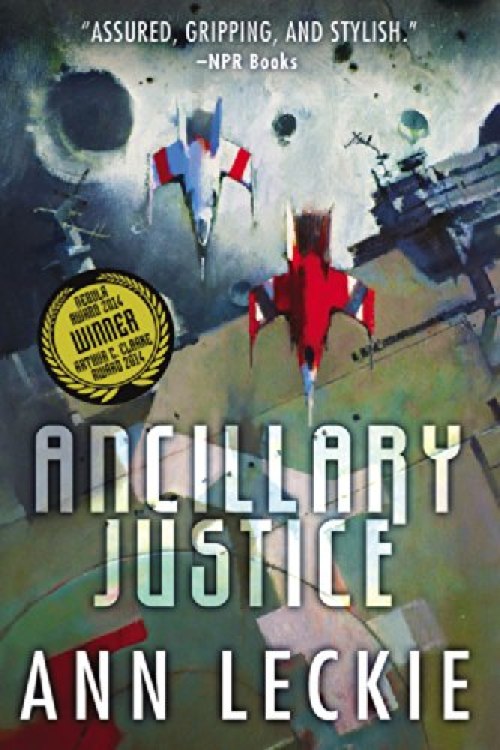Ancillary Justice
Winner of both the Hugo and Nebula awards. That used to herald something remarkable: Dune, The Left Hand of Darkness, and Ringworld were the first three books to do it. Some of the joint awards were really lifetime achievement awards, and if you exclude those the full list of double winners is has lots of terrific books and only a few possible clunkers.
Ancillary Justice thinks seriously about alien minds – in this case, about collective entities with many human or humanoid bodies, all guided by a single intelligence. What happens when communications break down? What happens when the mind become bicameral? When self-doubt and self-loathing can find expression in civil war?
Some of Leckie’s world building is extremely clever. A collective mind that controls numerous humanoid agents is simply not going to be very interested in gender, and that gets expressed in all sorts of interesting ways, most notably in lots of play with pronouns that reminds us how pervasively interested in gender we are. There’s also a strangely nostalgic vein here for the space opera of a vanished age. Some passages feel like Jack Vance or Cordwainer Smith.
